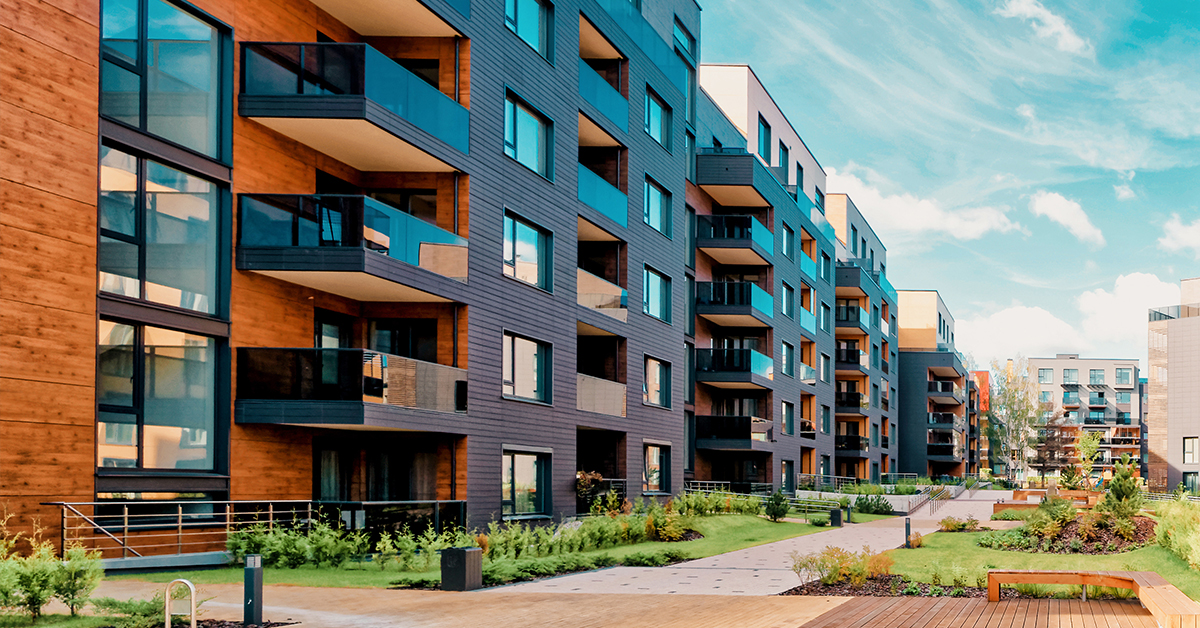The Duty of an HOA in Developing and Enforcing Neighborhood Standards for Residents
The function of a Homeowners Organization (HOA) in establishing and enforcing neighborhood standards is essential to keeping a natural and orderly household atmosphere. By creating clear regulations that govern facets such as home maintenance and area conduct, the HOA not only establishes standards for citizens yet additionally fosters a feeling of belonging and responsibility.
Understanding Homeowners Organizations
Homeowners organizations (HOAs) work as governing bodies for household communities, playing a vital role in maintaining property worths and promoting a feeling of community. Normally formed by programmers, HOAs are composed of homeowners within a designated location who elect a board to manage the organization's tasks. The key functions of an HOA include imposing area regulations, taking care of typical areas, and organizing community occasions.
HOAs run under a collection of regulating papers, including limitations, conditions, and commitments (CC&R s), which outline the legal rights and responsibilities of home owners. These regulations intend to guarantee that properties are maintained to a specific criterion, therefore securing the aesthetic allure and overall worth of the neighborhood. Furthermore, HOAs commonly collect dues from property owners to money maintenance, landscaping, and various other social work.
The presence of an HOA can considerably influence the living experience within a community (hoa condo). While some locals value the organized setting and facilities offered, others might find specific policies restrictive. Balancing the passions of all house owners is necessary for an HOA to function properly, making sure that it serves its intended purpose of improving community living while respecting specific home owner legal rights
Creating Area Standards

To start, an HOA should perform studies or hold conferences that permit citizens to voice their recommendations and worries. This participatory procedure cultivates a feeling of ownership and raises conformity. Next off, the HOA board should examine the responses to determine typical motifs and priorities that call for formal incorporation in the guidelines.
It is likewise necessary to make sure that the guidelines are clear, concise, and easily recognized. Obscurities can bring about misconceptions and conflicts, undermining the purpose of the standards. The standards ought to be detailed, covering different elements of community living, consisting of residential or commercial property upkeep, sound degrees, and use of typical locations.
Enforcement of Rules
Reliable enforcement of area guidelines is important for keeping order and ensuring that all locals comply with the established guidelines. An HOA needs to execute a structured approach to enforce these policies, which usually entails a combination of surveillance, communication, and penalties for non-compliance.
First, regular examinations and area patrols can aid recognize offenses, guaranteeing that rules are constantly used across the neighborhood. This positive monitoring allows the HOA to resolve concerns prior to they rise, fostering a feeling of liability amongst locals.
Second, clear communication is necessary. Homeowners ought to be notified of the rules and the treatments for reporting violations. An open line of interaction encourages locals to voice issues and look for explanation on standards, which can improve compliance.

Finally, when check my site violations occur, the HOA needs to impose consequences as described in the regulating records. By properly implementing regulations, an HOA can cultivate an unified living atmosphere that reflects the collective values of its locals.
Advantages of HOA Laws
Countless benefits arise from the implementation of HOA regulations, which offer to boost the top quality of life within an area. One main advantage is the upkeep of home worths. By applying standards for aesthetics and maintenance, HOAs make sure that homes and typical areas remain eye-catching, fostering a desirable living setting that can cause boosted home worths with time.
Furthermore, HOA regulations advertise consistency and uniformity within the community. This comprehensibility in design and upkeep helps to produce a feeling of belonging amongst locals, contributing to neighborhood pride and a positive atmosphere. Developed guidelines facilitate problem resolution amongst neighbors by giving clear assumptions and protocols for behavior, thereby lessening disputes.
Another substantial advantage is the stipulation of common services and services. Numerous HOAs handle neighborhood centers such as swimming pools, clubhouses, and parks, which improve entertainment chances for residents. These features not just boost the top quality of life however additionally encourage social interaction.
Eventually, the guidelines set forth by an HOA cultivate an efficient, harmonious community, making sure that residents take pleasure in a high criterion of living while promoting a supportive environment for all house owners.
Usual Obstacles Faced by HOAs
Amidst the benefits that house owners organizations (HOAs) can offer, they likewise encounter a variety of difficulties that can hinder their efficiency. Numerous home owners might not get involved in meetings or community tasks, leading to a separate between the HOA board and residents.
An additional difficulty is the enforcement see page of policies and regulations. Disputes can develop when locals really feel that enforcement is inconsistent or biased, potentially bring about disputes within the community. In addition, HOAs frequently deal with financial constraints, which can limit their capability to keep common areas or fund community projects. This can create frustration among homeowners that expect high requirements of upkeep.
Moreover, browsing legal intricacies can be intimidating for HOAs. Evolving and altering demographics neighborhood needs call for HOAs to adapt their standards, usually fulfilling resistance from enduring citizens that are accustomed to typical standards.
Final Thought

By formulating clear rules that regulate facets such as residential click here for more property upkeep and neighborhood conduct, the HOA not only establishes criteria for residents however additionally fosters a sense of belonging and liability.Homeowners organizations (HOAs) offer as governing bodies for domestic areas, playing an essential role in keeping residential property worths and promoting a feeling of neighborhood. Numerous property owners may not get involved in conferences or neighborhood activities, leading to a separate in between the HOA board and citizens. Evolving and changing demographics community needs call for HOAs to adjust their guidelines, usually meeting resistance from enduring residents that are accustomed to typical standards. Via the development of clear guidelines and consistent enforcement, HOAs promote residential or commercial property maintenance, community satisfaction, and trust fund among locals.